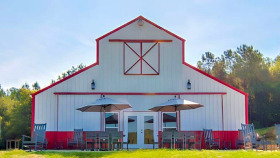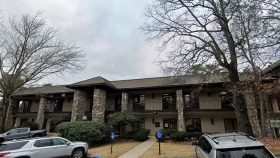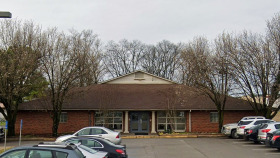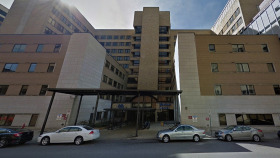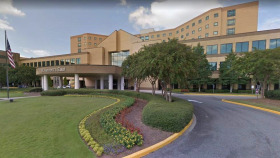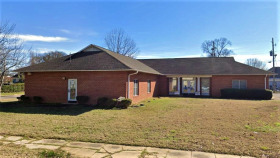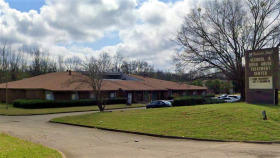Expert Insights
Birmingham is having its annual CityWalk BHAM soon, and it’s for a great cause. In 2022, there were 418 confirmed overdose deaths in Jefferson County. An astounding 80% of those were related to fentanyl. By taking part in community Walks Like CityWalk BHAM, you can help make change happen. When you sign up, you can raise funds or simply show up to show your support. It helps to spread awareness about the serious drug epidemic in Birmingham and Alabama as a whole. The money collected goes towards funding addiction treatment resources in the area, something that Birmingham desperately needs – especially in the rural areas of the city without access to vital treatment resources or clinics. I hope to see more of these community efforts pop up around the country.
~ Rita Milios
Cost of Drug Rehab in Birmingham
Birmingham drug and alcohol rehab costs vary depending on whether they are inpatient or outpatient. Inpatient or residential facilities, with room and board included, generally cost more than outpatient programs. Facilities with upscale amenities, such as pools and tennis courts, are more expensive, too. And longer courses of treatment increase the cost.
Rehabilitation may be expensive, but the cost of remaining addicted is even more costly in lost health, lost relationships, and lost work.5
Many private insurances, Medicare, Medicaid, and military insurance, cover a portion of your treatment. The portion covered varies from policy to policy and is something to check before you decide on a particular facility.
Low-Cost and Free Drug Rehab Centers in Birmingham
If you don’t have health insurance or your insurance only partially covers a rehab’s fees, you can look for a free or low-cost facility. The Alabama Department of Mental Health works with community-based rehabs and providers to offer people low-cost or free care.6
The state gives funding to treatment programs. In return, these programs offer care at a reduced rate. They base their fees on your income and assets. This is called a sliding schedule fee. Some people won’t pay anything at all for care.6
Jefferson County, which includes Birmingham, has state-funded residential (inpatient) and outpatient rehabs that treat adolescents and adults. Medication-assisted therapy is also supported with state dollars.6
Under a federal grant, pregnant women and women with dependent children receive free care. Children can accompany their moms to treatment.6
Does Insurance Cover Rehab Center Costs?
When the Affordable Care Act (ACA) or Obamacare went into effect, it allowed you to compare and purchase affordable health insurance. It also prevented you from being denied coverage due to a pre-existing condition. With the ACA, SUD treatment became an essential health benefit included in small group and marketplace insurance plans.7,8
The Mental Health Parity and Addiction Equity Act (MHPAEA) come into play under group health insurance plans. This law says it’s illegal for you to be charged more for SUD treatment than for other medical care. Your copays, deductibles, and any caps on total dollars paid out by the insurance company must be equivalent to that for the treatment of mental health and physical health conditions.9
While both the ACA and MHPAEA expanded coverage for alcohol and drug rehabs, not every private insurance is accepted by a particular facility. When you find a rehab you’re interested in, check to make sure it accepts your insurance.
Medicaid Coverage
Medicaid is state and federally-funded health insurance. To qualify for Medicaid in Alabama, you need to be one of the following:10
A child in a low-income family
A disabled adult
A low-income adult with Medicare (65 or over or younger and disabled)
A nursing home patient
Pregnant
You also need to be below income thresholds, which vary with the size of your family, your age, and your disabilities. About one in four Alabama residents qualifies for some form of Medicaid. Most are children.10
If you qualify for Medicaid, it covers SUD treatment in community-based and inpatient rehabs.10
Medicare Coverage
Medicare insures individuals 65 and older or younger people who are disabled. Medicare is government-funded insurance that covers inpatient and outpatient alcohol and drug rehab.
Medicare Part A covers inpatient care. Part B covers outpatient care.
Under Medicare Part A, you’re responsible for:11
A total deductible of $1556 for inpatient treatment from Day 1 to Day 60
A coinsurance payment of $389 per day for inpatient rehab from Day 61 to Day 90
A coinsurance payment of $778 per day for inpatient rehab from Day 91 on
For 2022, Medicare Part B’s deductible is $233.12
To reduce the out-of-pocket expenses you might have with Original Medicare, you can purchase supplemental or Medigap coverage from a private health insurance company. Medigap helps cover these deductible and coinsurance payments.13
Private Insurance
Blue Cross Blue Shield of Alabama, UnitedHealthcare, and Bright Health Insurance are popular health insurance companies in Alabama. Blue Cross Blue Shield and Bright Health both offer major medical plans to individuals.14
The copays, deductibles, and out-of-pocket expenses you pay vary depending on the plan you purchase. Plans that cover the majority of the cost of rehab come with higher monthly premiums.15
An in-network rehab that has a fee agreement with your health insurance company will usually mean less out-of-pocket expense for you.
Call the number on the back of your insurance card or call one of our specialists to find out what your insurance covers and which Birmingham detox centers and rehabs accept your insurance.
Birmingham Alcohol and Drug Use Statistics
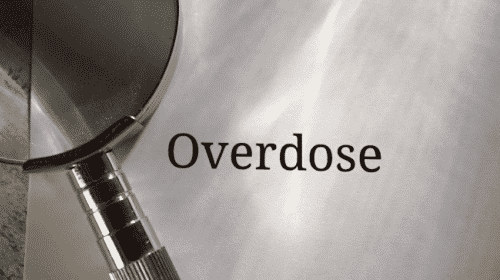
The 2021 drug overdose rate in the state of Alabama is 16.3 (per 100,000).
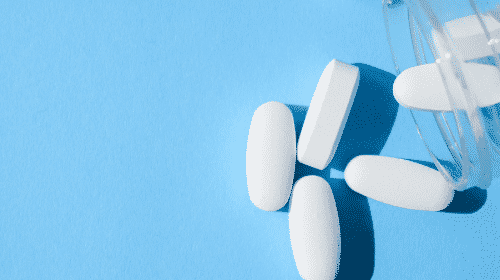
Drug overdoses in the first quarter of 2021 climbed 77% in Birmingham.

More than 107,000 people died from an overdose (about one person every five minutes).
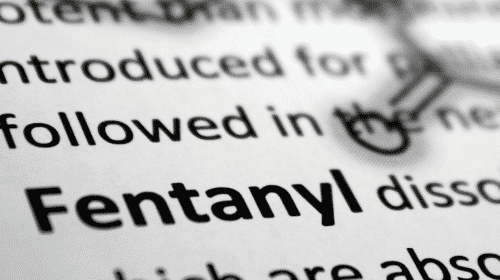
Around 71,000 of those deaths are caused by fentanyl, a 126% increase.
In 2019, 17,549 people 12 years and older were treated for alcohol and substance use disorders (SUDs) in Alabama rehabs.3
Below is the breakdown:
Unfortunately, the epidemic of drug overdoses has been on the rise in Birmingham, climbing 77% in the first quarter of 2021 as compared to a year earlier. Over this same time frame, overdose deaths from fentanyl rose 126%.4
These numbers represent lives lost, grieving families, and friends wishing they could turn back the clock.
In sharing these statistics, we hope you’ll realize how important it is to get help for your substance use disorder (SUD). It is a chronic medical condition that’s treatable.
Please call one of our specialists at
800-681-1058
(Who Answers?)
for help finding accredited Birmingham drug rehabs for yourself or a loved one.
Drug and Alcohol Laws in Birmingham
Good Samaritan Overdose Prevention Law: This law protects you from being charged with misdemeanor drug charges when you call 911 for someone who has overdosed. You must use your own name when calling and stay with the person who has overdosed until medical personnel arrive.34
Naloxone Access Law: Naloxone (Narcan) reverses the effects of an opioid and is used when you suspect someone has overdosed. It is a life-saving medication. Alabama’s Standing Order for Narcan allows anyone to get naloxone from a pharmacy and administer it without fear of civil or criminal liability.34, 35
Drug Court: Jefferson County Drug Court is for first-time nonviolent drug offenders. You may receive treatment rather than punishment under this program. The program lasts at least 6 months and charges are dropped after successful completion of rehab.36
Lasting recovery is within your reach. Please call one of our treatment specialists. We’re available to help you find accredited alcohol and drug rehab centers in Birmingham today.
Addiction Treatment Settings

A treatment facility with living quarters is called an inpatient or residential rehab. Most inpatient facilities are based in a free-standing facility. If you happen to need care for a serious medical condition along with treatment for a SUD, your inpatient care may take place in a hospital.16
With inpatient addiction treatment, you don’t need to worry about your housing or meals. You can focus completely on your therapy in a safe, structured environment. You’ll have the support of staff and other people in care around the clock. With inpatient, you place some distance between you and people you drank or used drugs with.
You may be able to continue school or get a GED, receive job training, bring your children, and attend parenting classes in an inpatient facility.
If your living situation is not very stable, you don’t have reliable transportation, your addiction is severe, or you have a mental health disorder in addition to SUD, an inpatient program may be advantageous for you.
With outpatient, you live at home or in a sober living home. Outpatient ranges from partial hospitalization programs (PHPs), intensive outpatient programs (IOPs), and standard outpatient programs. The difference between each program is the hours per week spent in treatment.16
A big advantage to outpatient rehab is its lower cost. Outpatient allows you to continue being with supportive family and friends in the evenings after you’re finished with the day’s therapy.16
Addiction treatment occurs on a continuum with more intensive therapy at the beginning. With outpatient, this care continuum usually happens under the same roof. You don’t have to continue care in a new place. As you have more free time, you can resume working or caring for your children.
Specialized Drug Rehabs in Birmingham
Drug and alcohol rehabs in Birmingham aren’t one size fits all. Finding a facility that fits within your belief system, fits your budget, or treats both a SUD and co-occurring mental health disorder is important.19
Holistic
Holistic rehabs treat your mind, body, and spirit with an individualized treatment plan. They may incorporate meditation or guided imagery, art and music therapy, massage, acupuncture, reiki, and pilates or tai chi.
Christian and Faith-Based
Faith in God or a higher power is often a source of comfort. Faith-based and Christian rehabs treat addiction with traditional therapies but also rely on spirituality for healing and support. You’ll be in the company of fellow believers, like a faith-based 12-step program (Alcoholics or Narcotics Anonymous).
Luxury
Luxury rehabs offer traditional treatments and therapy in a high-end setting. Along with private rooms, amenities might include chef-prepared meals, a yoga studio, massages, and equine therapy. They’re often situated in a very tranquil and beautiful setting. Expect lower staff-to-patient ratios, too.
Executive
Executive rehab offers a treatment plan and environment geared toward the working professional. The facility usually has upscale amenities, such as exercise facilities, well-appointed private rooms, and personal office space. Therapy may be scheduled around your work commitments.
Dual Diagnosis
A dual-diagnosis rehab treats both a SUD and a mental health disorder. Bipolar disorder, anxiety, depression, and post-traumatic stress disorder (PTSD) are common.21
Medication-Assisted Treatment
Medications used for alcohol and/or opioid use are aimed at reducing or stopping your use of these substances. Medication-assisted treatment (MAT) is combined with behavioral therapy and counseling.24
With MAT you are:24
- More likely to stay in treatment
- Less likely to use opioids
- More likely to have a healthy baby if you stay in recovery
- More likely to get and keep a job
- Less likely to die from an overdose
Even though MAT has been shown to be effective in treating alcohol and opioid misuse, it isn’t often used.25
Be sure to ask your treatment specialist about any of the following medications Food and Drug Administration-approved for use in alcohol and/or opioid addiction.
Methadone: Methadone is used to reduce cravings for heroin, fentanyl, or other opioids. Methadone is a long-lasting opioid that blocks or lessens the effect of other opioids you take. You won’t get a high from other opioids while taking methadone.26
Suboxone: Suboxone is a prescribed medication used to reduce opioid cravings or lessen the symptoms of opioid withdrawal. It’s a combination of buprenorphine and naloxone that comes in either a pill you dissolve under your tongue or a film you put under your tongue or on the inside of your cheek.27, 28
Naltrexone: Naltrexone is a prescription medication used to treat both alcohol and opioid addiction. It reduces your alcohol cravings and reduces the feeling of euphoria or pleasure you get when using heroin, fentanyl, or other opioids. Naltrexone prevents the euphoria by blocking access to the opioid receptors in your brain.30
Antabuse (Disulfiram): Disulfiram is a prescription medication that disrupts your body’s ability to metabolize or break down alcohol in your liver. Disulfiram prevents the second step in the process from happening, so a chemical produced in the first step accumulates.
Acamprosate for Alcohol Use Disorder: Acamprosate (Campral) decreases your urge to drink alcohol by getting the chemicals in your brain in balance. Acamprosate does not relieve the symptoms of alcohol withdrawal.33
Should You Travel for Drug and Alcohol Rehab in Birmingham?
 When you are looking for an alcohol or drug rehab, sometimes it makes sense to enter treatment away from home, away from the people you drink and use drugs with, and away from anything that might interfere with your recovery.
When you are looking for an alcohol or drug rehab, sometimes it makes sense to enter treatment away from home, away from the people you drink and use drugs with, and away from anything that might interfere with your recovery.
Traveling to Birmingham for care may be your best option if:
- Your health insurance has more options for in-network facilities in the city
- You have supportive family or friends in the area
- You’ve found a specialty rehab that meets your needs
Highland Park is a historic neighborhood several miles from the business district. It has parks, a golf course, restaurants, and coffee shops. The neighborhood has plenty of diversity.
Forest Park is another historic area in Birmingham with parks, boutiques, and restaurants. It offers a nice balance of urban and suburban.
Southside, which includes the Five Points South District, is home to restaurants, live music venues, and a 19-acre park with a lake and walking/bicycling trails.
Resources
- FindTreatment.gov. (n.d.). FindTreatment.gov.
- In Birmingham. (2021). The Top 5 Reasons Birmingham is in Travel + Leisure’s “Top 50 Places to Visit in 2021.”
- Centers for Disease Control and Prevention. (2022). Vital Statistics Rapid Release.
- Substance Abuse and Mental Health Services. (2021). Treatment Episode Data Set (TEDS) 2019 (Revised).
- Yurkanin, A. (2021). Health officials raise the alarm over overdose deaths in the Birmingham area. Alabama News.
- National Institute on Drug Abuse. (2020, June 3). Principles of Drug addiction Treatment: A Research-Based Guide (Third Edition): Is drug addiction treatment worth its cost?
- Alabama Department of Mental Health. (n.d.). Substance Abuse Treatment Services.
- Abraham, A. J., Andrews, C. M., Grogan, C. M., D’Aunno, T., Humphreys, K. N., Pollack, H. A., & Friedmann, P. D. (2017). The Affordable Care Act Transformation of Substance Use Disorder Treatment. American journal of public health, 107(1), 31–32.
- Healthcare.gov. (n.d.). Mental Health and Substance Abuse Coverage.
- Centers for Medicare & Medicaid Services. (n.d.). The Mental Health Parity and Addiction Equity Act.
- Alabama Medicaid. (2022). Qualifying for Medicaid.
- Medicare.gov. (n.d.). Mental health care (inpatient).
- CMS. gov. (2021, November 12). 2022 Medicare Parts A & B Premiums and Deductibles.
- Medicare. gov. (n.d.). What’s Medicare Supplement Insurance?
- Alabama Department of Insurance. (2020). Insurance Companies Offering Individual Major Medical Coverage in Alabama.
- Blue Cross Blue Shield of Alabama. (n.d.). What Health Coverage Can Do For You.
- Substance Abuse and Mental Health Services Administration. (2014). What is Substance Abuse Treatment? A Booklet for Families.
- National Institute on Drug Abuse. (2019, January 17). Treatment Approaches for Drug Addiction DrugFacts.
- National Institute on Drug Abuse. (2020, June 3). Principles of Drug addiction Treatment: A Research-Based Guide (Third Edition): Types of Treatment Programs.
- National Institute on Drug Abuse. (2020, September 18). Principles of Drug Addiction Treatment: A Research-Based Guide (Third Edition) Principles of Effective Treatment.
- Zgierska, A., Burzinksi, C. (2016). Substance Use Disorder Treatment: Complementary Approaches Clinical Tool.
- Substance Abuse and Mental Health Services Administration. (2005). Substance Abuse Treatment for Persons with Co-Occurring Disorders
- Substance Abuse and Mental Health Services Administration. (2021). Key substance use and mental health indicators in the United States: Results from the 2020 National Survey on Drug Use and Health. (HHS Publication No. PEP21-07-01-003, NSDUH Series H-56). Rockville, MD: Center for Behavioral Health Statistics and Quality, Substance Abuse and Mental Health Services Administration.
- Substance Abuse and Mental Health Services Administration. (2022, June 10). Medication-Assisted Treatment
- Substance Abuse and Mental Health Services Administration. (2022). Medication-Assisted Treatment
- Substance Abuse and Mental Health Services Administration. (2020). Key Substance Use and Mental Health Indicators in the United States: Results from the 2020 National Survey on Drug Use and Health.
- Substance Abuse and Mental Health Services Administration. (2022, April 13). Methadone.
- National Alliance on Mental Illness. (2021). Buprenorphine/Naloxone (Suboxone)
- Substance Abuse and Mental Health Services Administration. (2022, April 21). Buprenorphine.
- Substance Abuse and Mental Health Services Administration. (2016). Advisory: Sublingual and Transmucosal Buprenorphine for Opioid Use Disorder: Review and Update.
- National Alliance on Mental Illness. (2021). Naltrexone (ReVia).
- Substance Abuse and Mental Health Services Administration. (2021). Medications for Opioid Use Disorders.
- Substance Abuse and Mental Health Services Administration. (2015). Medication for the Treatment of Alcohol Use Disorder: A Brief Guide.
- National Alliance on Mental Illness. (2021). Acamprosate (Campral)
- Alabama Public Health. (2015). HB208.
- Alabama Public Health. (2021, December 8). Pharmacy.
- Jefferson County D.A. (n.d.). Drug Court.


